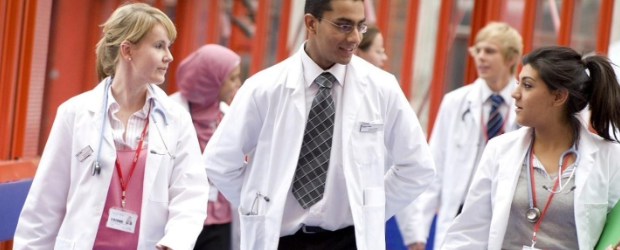Experience in the medical industry offers aspiring healthcare workers priceless insights into the reality of the job. It provides a chance to see healthcare professionals at work, comprehend the difficulties they encounter, and obtain first-hand knowledge of how hospitals and clinics operate on a daily basis. We will go into the field of medical work experience in this post, outlining its importance, the numerous options accessible, and the insights it provides those looking to pursue a career in medicine. We want to give a thorough grasp of the reality of medical work experience and how it affects the development of future healthcare professionals through this investigation.
The Importance of Medical Work Experience
For those thinking about a career in medicine, medical job experience is crucial. It enables aspiring healthcare workers to have a thorough awareness of the challenges, obligations, and benefits related to the profession. Students can determine whether a medical vocation fits with their interests, abilities, and temperament by direct observation and engagement. It acts as an essential first stage in the decision-making process by giving a realistic preview of the prospects and problems that are to come.
Observational Placements: Shadowing the Experts
Students get the opportunity to witness the daily activities of healthcare professionals during observational internships. For those interested in learning more about various medical disciplines, such as surgery, internal medicine, pediatrics, obstetrics, and others, this type of job experience is very beneficial. Students may experience the intricate interaction of clinical expertise, critical thinking, and interpersonal abilities necessary to offer the best possible patient care by watching healthcare professionals in action. They can also understand how medical practice is supported by cooperation, time management, and ethical issues.

Volunteering: Making a Difference in Healthcare
People who volunteer in healthcare settings can actively contribute to patient care while also acquiring practical skills. Volunteering offers a special chance to see the effects of healthcare professionals on people and communities, whether it’s helping nurses with patient cleanliness, consoling patients and their families, or taking part in community health programs. Aspiring healthcare professionals benefit from this kind of medical work experience by developing empathy, resiliency, and a sense of social responsibility, as well as by gaining useful skills and making valuable contacts within the healthcare system.
Clinical Placements: Immersion in the Patient Care Environment
Students who participate in clinical placements gain hands-on experience by working alongside healthcare professionals in hospital wards, outpatient clinics, or other healthcare settings. Individuals that pursue this type of medical job experience are exposed to the wide spectrum of people, ailments, and treatments that may be found in the delivery of healthcare in the real world. In order to learn practical skills and comprehend the nuances of patient care, students actively engage in patient evaluations, treatment planning, and multidisciplinary team discussions. Clinical assignments also help with the creation of networks of professionals and mentorship possibilities, both of which are beneficial for future career advancement.
Challenges and Realities of Medical Work Experience
While gaining medical work experience has many advantages, it also makes students aware of the difficulties and reality of working in the healthcare industry. Medical practice frequently involves long hours, stressful situations, and demanding emotional conditions, which prospective professionals must deal with. It may be emotionally hard to observe patients’ suffering, make tough choices, and strike a balance between one’s needs and those of others. However, confronting these difficulties head-on helps people to evaluate their fortitude, coping skills, and general appropriateness for a career in medicine.

Ethical Dilemmas and Professional Conduct
The opportunity to work through ethical problems and consider the value of professional behavior in the healthcare industry is provided through medical work experience. In addition to other ethical issues, students may run across circumstances regarding patient confidentiality, informed consent, end-of-life care, or resource allocation. Students can grasp the moral code that governs medical practise by watching healthcare professionals deal with these difficult concerns. It cultivates ethical awareness, empathy, and critical thinking abilities, enabling them to make moral choices in their future professions as doctors.
Interprofessional Collaboration: Teamwork in Healthcare
The importance of interprofessional collaboration in providing complete patient care is shown by experience in the medical field. Students get the ability to see how doctors, nurses, chemists, physical therapists, and other healthcare professionals work together, which helps them understand the value of successful cooperation and communication. Individuals have a stronger knowledge of the interdependencies among healthcare practitioners and the shared accountability for patient outcomes by attending patient rounds and watching multidisciplinary team meetings.
Cultural Competence and Patient Diversity
Experience in medicine provides exposure to a variety of patient groups in today’s globalized society, fostering cultural competency in prospective healthcare professionals. Students may come into contact with patients from various socioeconomic or religious backgrounds, allowing them to understand how culture affects healthcare practices, beliefs, and communication methods. Future healthcare professionals may provide patient-centered care that respects and accommodates the particular needs and values of people from diverse origins by acquiring cultural sensitivity and understanding.

Resilience and Emotional Intelligence
People with medical professional experience must be resilient and emotionally intelligent. Observing patients’ suffering, dealing with challenging circumstances, and being calm in high-stress scenarios are all essential components of healthcare practice. Through their experiences, students gain empathy and compassion, learn how to deal with the emotional difficulties that come with caring for patients, and develop self-care techniques to avoid burnout. Individuals can better prepare for the emotional pressures they will face throughout their careers by developing resilience and emotional intelligence while working in the medical field.
Reflection and Personal Growth
Personal development and introspection are two of the major effects of working in medicine. Students get the chance to consider their own beliefs, motives, and objectives as they negotiate the complexity of the healthcare industry. They come to a greater awareness of their assets, liabilities, and potential improvement areas. Individuals may improve their personal and professional objectives, boosting their overall growth as potential healthcare providers, by critically examining their experiences and the influence of their interactions with patients and healthcare professionals.
Last Words
Understanding the reality of healthcare practice might be facilitated by prior experience in the medical field. Aspiring healthcare workers can obtain understanding of the requirements, difficulties, and benefits of the industry via observation, involvement, and reflection. Individuals get insight into the complexity of medical practice, confront ethical conundrums, create interprofessional collaboration, and improve resilience and cultural competency by shadowing specialists, volunteering, or clinical placements. Experience in the medical field not only aids in choosing a job, but also develops people into caring, knowledgeable, and self-aware healthcare providers. A meaningful and significant future in the healthcare industry is made possible by this transforming trip that reveals the reality of medical practice.






